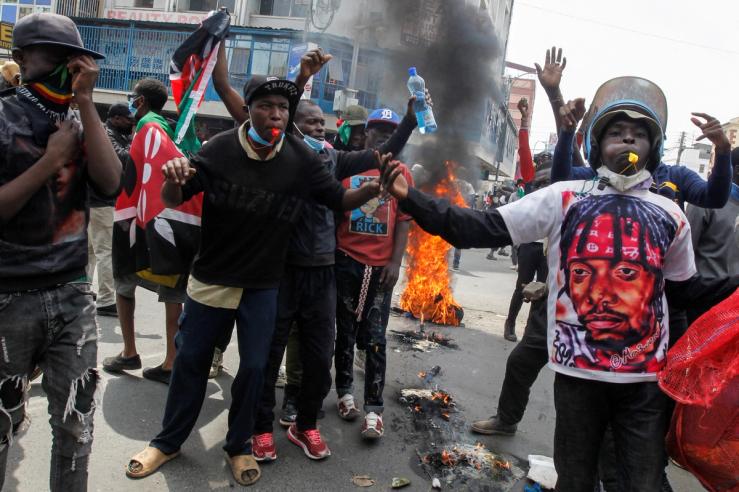The News
NAIROBI — Several Kenyan celebrities say they have ended partnerships with the country’s biggest telecom company Safaricom over claims it disrupted internet access during protests against planned tax hikes.
More than 10 social media influencers and entertainment artists alleged Safaricom purposely thwarted social media communications last week when Kenyan police fired live ammunition and used tear gas on hundreds of people protesting against proposed tax hikes. At least 30 people died in the unrest, according to Kenya’s rights watchdog.
Many Kenyans have echoed the sentiments with a campaign to boycott Safaricom, which they see as a tool at government’s disposal. Musicians also announced that they would pull down their work from Safaricom’s Skiza tune platform— the personalized ring back tone service for Safaricom customers to entertain their callers and from which musicians earn 30% of the income — in solidarity.
Among the creatives and content creators who publicly announced they had quit working with Safaricom included celebrity chef Dennis Ombachi, who stated that the company’s values and his are no longer aligned. Gospel artist Ben Cyco announced he would pull down his music from the Skiza tune platform, while content creator and influencer Mike Muchiri offered to end a years-long working relationship with the telco. He accused the company of having turned “its back on the very people it should support.”
Safaricom Chief Executive Peter Ndegwa in a video posted on X apologized for the network outage last Tuesday evening, but denied it was intentional disruption. Instead, he said it was “caused by reduced bandwidth on some of the cables that carry internet traffic,” which affected the “whole industry.”
He also denied claims that the company shared citizens’ data with government authorities leading to alleged abductions of vocal social media activists.
In this article:
Know More
Safaricom said an outage on two of its undersea cables caused the downtime, adding that it had activated redundancy measures to minimize interruptions. However, global internet observatory body Netblock said there was “no physical subsea cable damage yet identified,” and that the impact of the disruption was higher than had been observed during the past cable cuts.
Following uproar by Kenyans on X over internet disruptions, SpaceX Founder Elon Musk announced on Wednesday that Starlink Mini would be available at about half the standard terminal price later this year. So far, data shows that Kenya’s satellite internet uptake grew by 64% in the first quarter of this year with the entry of Starlink as many Kenyans search for affordable alternatives that are also proof against disruption by the authorities.
Proton VPN reported a significant increase in the use of virtual private networks in Kenya, following reports that the government was limiting access to the internet. It identified a 1200% spike in signups above normal level.
Muchira’s view
The bold move by the social media influencers and artists to disassociate themselves with Safaricom in solidarity with the youth-led protest movement points to a deep resistance to any role corporates appear to play in aiding government censorship.
The Kenyan government has a history of a delicate relationship with the internet and the mainstream media especially during heated political moments. In 2018, it shut down three local television stations that attempted to air the swearing in ceremony of the then opposition politician as president, before the top court rescinded the decision. Last week, one of the television networks, KTN News, reported threats from authorities to shut it down following the coverage of the protests.
However, social media has evolved into a platform for citizen-led journalism, airing realtime, unfiltered views including organizing massive protests like the ongoing one.
While the government has maintained it had no hand in the internet disruption and is committed to freedom of expression, it would not be farfetched to conclude that the political establishment was rattled by the fact that the protests that began last week were organized, mainstreamed and sustained largely on TikTok and X.
The social media platforms brought together Kenyans from different parts of the country and the diaspora to strategize and take on the government over the controversial finance bill, which has since been withdrawn following sustained pressure from protesters.
Notable
- President William Ruto has warned that his government will have to borrow an additional $2.7 billion to plug Kenya’s deficit after he scrapped the unpopular tax rises.


